Symposium 6:Post-TB Complication
Patients with pulmonary tuberculosis (TB), even after cure or complete treatment, may suffer from both infectious and non-infectious pulmonary complications, which are usually chronic and deteriorating in nature, and eventually result in significant compromise in lung function and quality of life. The most common non-infectious pulmonary complications are obstructive lung disease and bronchiectasis. In addition, prior history of TB has long been associated with the development of lung cancer. With the presence of structural lung disease, colonization and infection with nontuberculous mycobacteria and Aspergillus are also common. Clinical manifestations and radiographic abnormalities are often non-specific and overlapping. Therefore, in addition to TB recurrence or reinfection, all of these conditions need to be considered in the differential diagnosis for patients presenting with respiratory symptoms or deteriorated lung condition after complete treatment for pulmonary TB.
| Time (GMT+8) |
Topic | Speaker | Country / Region |
|---|---|---|---|
| 08:30-09:00 | Chronic Pulmonary Aspergillosis: An Unignorable Post-TB Lung Disease | Dr. Meng-Rui Lee | Taiwan |
| 09:00-09:30 | Post-TB lung function change: an overview | Dr. Po-Jui Chang | Taiwan |
| 09:30-10:00 | Is prior history of TB a risk factor of lung cancer | Dr. Jeng-Sen Tseng | Taiwan |
Chronic Pulmonary Aspergillosis: An Unignorable Post-TB Lung Disease
Abstract:
Chronic Pulmonary Aspergillosis (CPA) remains a significant clinical post-tuberculosis lung disease due to its considerable mortality and morbidity rates. It has been estimated that the 5-year mortality rate for CPA is notably high, approaching 50-85 %. Diagnosing CPA is challenging, requiring a combination of clinical symptoms, compatible radiographic findings, and mycologic evidence. Among the diagnostic criteria, obtaining mycologic evidence poses the greatest challenge. The optimal test for mycologic diagnosis of CPA remains a topic of debate. Unlike in cases of invasive pulmonary aspergillosis, serum galactomannan tests have low sensitivity for CPA. Similarly, Aspergillus culture demonstrates a low yield rate in detecting the presence of Aspergillus, even with the suggestion of utilizing high-volume cultures.
The diagnosis of CPA currently relies on testing for Aspergillus antibodies, specifically Aspergillus IgG. However, Aspergillus IgG testing is not without its limitations. This presentation will therefore include current diagnostic approach to CPA and its future directions. Furthermore, we will share our studies regarding CPA in Taiwan, focusing on its role in post-TB lung disease.
Dr. Meng-Rui Lee

Taiwan
I am a pulmonologist and hold a Ph.D. in Epidemiology. Currently, I serve as an attending physician at the National Taiwan University Hospital and hold the position of clinical associate professor at the National Taiwan University College of Medicine. My expertise is primarily in the field of chronic pulmonary infectious diseases, including tuberculosis, nontuberculous mycobacteria infections, and pulmonary aspergillosis.
In my role as a physician, I frequently face clinical scenarios that present complex challenges regarding the optimal care for patients. To navigate these challenges, I use clinical data to provide evidence-based recommendations that improve patient management. My research interests encompassed database studies such as claims database analyses. Additionally, I have a keen interest in biomarker research within the realm of chronic infectious diseases, focusing on their potential to enhance diagnostic processes and prognostic assessments.
Moreover, I am actively exploring the innovative integration of artificial intelligence, specifically deep learning, and breathomics in the diagnosis and management of chronic pulmonary infections.
Post-TB lung function change: an overview
Abstract:
While TB is treatable with antibiotics, there is increasing recognition that lung damage and impaired lung function frequently persist after successful treatment. This presentation will provide an overview of post-TB lung function changes based on recent research. Multiple studies have demonstrated that 38-62% of cured TB patients have abnormal lung function, with obstructive, restrictive, and mixed ventilatory defects. The likelihood of post-TB lung dysfunction appears to be higher with more extensive disease, delayed treatment, smoking, and diabetes. Post-TB lung impairment is associated with reduced exercise tolerance, quality of life, and increased risk of chronic obstructive pulmonary disease (COPD) over time. Proposed mechanisms include fibrosis, bronchiectasis, and small airway narrowing. Early case detection, timely treatment, smoking cessation support, and close monitoring of lung function after cure could mitigate declining lung health in this vulnerable population. Further research into post-TB chronic lung disease is warranted globally given the enormous burden of TB disease. This presentation will review key studies on post-TB lung function change, discuss proposed disease mechanisms and risk factors, highlight impacts on quality of life, and suggest strategies for early detection and proper management.
Dr. Po-Jui Chang

Taiwan
Dr. Po-Jui Chang is currently an assistant professor and pulmonologist in Chang Gung Memorial Hospital (CGMH) at Linkou, Taiwan. Since 2013, he has been the head of the Airway Disease Division of the Department of Thoracic Medicine.
Dr. Chang earned his medical degree from Chang Gung University in 2001 and underwent residency and fellowship training in CGMH at Linkou. He got his PhD training under supervision of Prof. Kian Fan Chung during 2008-2012 in National Heart and Lung Institute (NHLI), Imperial College London, UK, focusing on corticosteroid insensitivity in severe asthma. His research was published in American Journal of Respiratory and Critical Care Medicine (AJRCCM) and Journal of Allergy and Clinical Immunology (JACI).
Dr. Chang has broad clinical and research interest in chronic airway diseases, pulmonary rehabilitation, and chronic cough, with expertise in severe asthma and COPD. Since 2014, he has delivered over 60 academic lectures per year in symposiums and workshops. He also participated in the authorship of the handbook of pulmonary rehabilitation for COPD, Taiwanese asthma/COPD guidelines, and severe asthma casebook published by Taiwan Society of Pulmonary and Critical Care Medicine (TSPCCM), as well as Taiwanese pneumonia guidelines co-published by the Infectious Disease Society of Taiwan and TSPCCM.
Is prior history of TB a risk factor of lung cancer
Abstract:
Lung cancer, which has both a high incidence and a high mortality rate, is the leading cause of cancer-related death worldwide. In addition to cigarette smoking, many environmental and genetic factors have been suggested to be involved in the pathophysiology of lung tumorigenesis. Many previous studies have reported that tuberculosis infection may cause inflammation in the lung, which results in lung fibrosis, dysplasia, and scar formation. Additionally, the persistent and uncontrolled inflammatory cascades could lead to DNA damage, apoptosis, and residual fibrosis, which may finally cause gene mutations and slowly evolve into cancer cells.
In this presentation, we are going to talk about the current evidence addressing the association between tuberculosis and the subsequent risk of lung cancer formation. Because not all the studies have revealed consistent results, we will also discuss the possible confounders, which could influence the interpretation of these data, e.g., the exposure to smoking or other lung cancer risk factors, the influence of the latency period of tuberculosis, and the extent of tuberculosis infection as well as lung fibrosis. In many countries with low TB incidence, their incidence of lung cancer has not decreased and vice versa. Currently, many interesting issues remain unclear; hence, more evidence and deep investigation are still required to answer this question regarding “Is prior history of TB a risk factor of lung cancer?”.
Dr. Jeng-Sen Tseng

Taiwan
Dr. Jeng-Sen Tseng graduated from China Medical University in Taiwan and completed his PHD program at Institute of Biomedical Sciences, National Chung Hsing University in Taiwan. Dr. Tseng, a pulmonologist, with dedication to the care of lung cancer patients, specializes in interventional pulmonology procedures, personalized lung cancer treatment, and lung cancer screening. In addition to the clinical practice, he delves into lung cancer studies including biomarker assessment, identification of drug resistant mechanisms, precision medicine, liquid biopsy, and basic lung cancer research. He has published more than 60 peer-reviewed articles in the fields of lung cancer and chest medicine. Dr. Tseng currently acts as the Associate Professor at Department of Post-Baccalaureate Medicine in National Chung Hsing University in Taichung and serves as the Director of Lung Cancer Comprehensive Care and Research Center at Taichung Veterans General Hospital.
Dr. Wei-Chang Huang

Taiwan
Dr. Meng-Jer Hsieh

Taiwan




